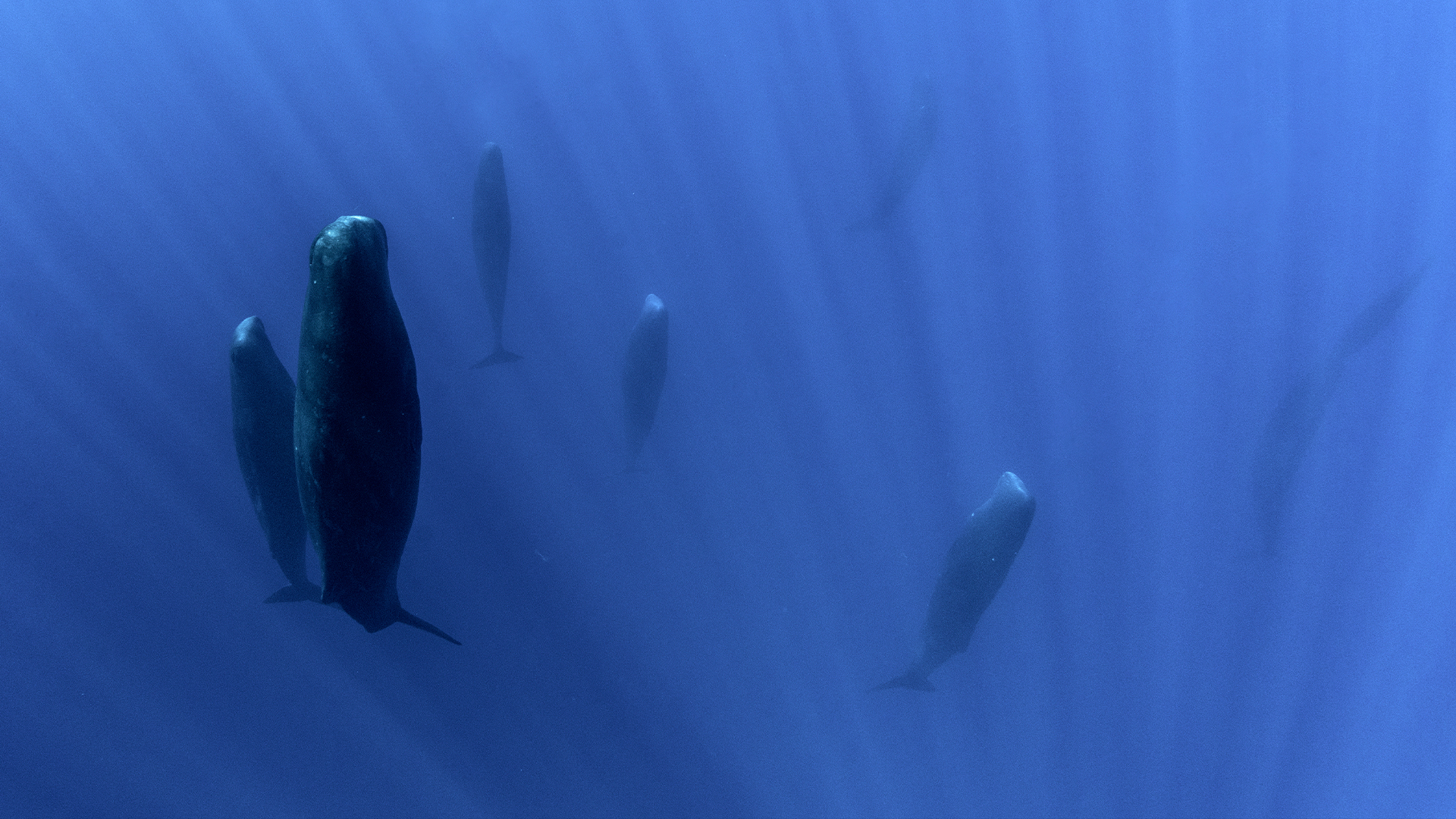
How do marine mammals sleep underwater?
How can animals that need to breathe air manage to sleep underwater?

If marine mammals want to sleep, they can't just close their eyes and drift away for the night, as they need to intermediately surface for air. Nor can they float at the water's surface and slumber, because that exposes them to predators and heat loss. So how do marine mammals get any shut-eye without putting themselves at risk?
One solution is to shut down one half of their brain at a time. Called unihemispheric sleep, it's one way marine mammals, such as dolphins, can get some rest while in open water.
"Unihemispheric sleep is really valuable to these animals because it allows them to maintain a low level of activity while still sleeping half of their brain at a time," Patrick Miller, a biologist at the University of St Andrews in the U.K., told Live Science.
Dolphins are the best-studied marine mammals capable of this style of sleeping. Brain scans on captive dolphins show that while one hemisphere is in slow-wave, deep sleep, the other hemisphere is alert, allowing the animals to literally sleep with one eye open. This style of sleeping is common in cetaceans — the group of mammals that includes dolphins, whales and porpoises — but it's not unique to them. Many bird species are known to use unihemispheric sleep, often allowing them to doze while flying.
But according to Miller, birds and dolphins use their half-brain sleeping technique for different purposes. For instance, in a flock of birds, many of the ones on the outside of the group keep the eye facing away from the flock open, to watch for predators. But dolphins do the opposite: While sleeping, they tend to keep the eye open that faces the rest of the pod, likely to avoid becoming separated.
Related: Why do horses sleep standing up?

Not all cetaceans seem to be capable of unihemispheric sleep. Some use bihemispheric sleep, in which both hemispheres of the brain fall asleep, just like humans and most other mammals do.
Sign up for the Live Science daily newsletter now
Get the world’s most fascinating discoveries delivered straight to your inbox.
"It's really difficult to measure brain activities for animals out at sea that you're not able to capture, like a sperm whale, blue whale or a humpback whale," Miller said. "In that case, behavioral records are our best indicator of sleep behavior."
In those cases, researchers can affix tags to the animals to monitor their behavior. A 2008 study led by Miller used suction tags attached to sperm whales (Physeter macrocephalus) to show that they sleep out in the open ocean for short bouts. The whales make shallow dives beneath the surface, slow their swim speed to a stop, and pitch lazily upward. Their upward pitch is likely due to the buoyant oil, known as spermaceti, in their heads.
While sleeping, whole pods of whales can be seen nose-up, just below the ocean's surface. During this time, the animals are completely unresponsive, which suggests they are in a form of deep sleep. However, the animals can rest only about 20 minutes underwater before they need to come back up for air. Once the whale has caught its breath, it slinks below the surface for more rest, and may continue this behavior for up to 3.5 hours.
Northern elephant seals (Mirounga angustirostris) are bihemispheric sleepers as well and snooze in similar short bouts. A 2023 study led by Jessica Kendall-Bar, a postdoctoral researcher at the Scripps Institution of Oceanography, a department of the University of California, San Diego, was able to, for the first time, monitor brain activity in a sleeping mammal at sea. Kendall-Bar and colleagues found that the seals dive to a depth of around 1,000 feet (300 meters), at which point their brains slow down and enter rapid eye movement (REM) sleep. Once in REM sleep, the seals flip upside down and spin in a slow circle while continuing to sleep.
"Seals sleeping in the ocean were upside down 100% of REM sleep time, suggesting that just like us, they become paralyzed during REM," Kendall-Bar said in a YouTube video describing the research.
Likely due to predation risk, elephant seals limit their total sleep time at sea to just around two hours per day, "rivaling the record for the least sleep among all mammals, which is currently held by the African elephant (about 2 hours per day)," the researchers wrote in the study.

Cameron Duke is a contributing writer for Live Science who mainly covers life sciences. He also writes for New Scientist as well as MinuteEarth and Discovery's Curiosity Daily Podcast. He holds a master's degree in animal behavior from Western Carolina University and is an adjunct instructor at the University of Northern Colorado, teaching biology.









